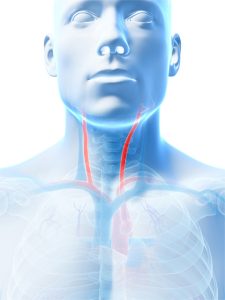 The carotid arteries are located in your neck and a Carotid Doppler is an imaging test that uses ultrasound sound waves to produce images of the carotid arteries in the neck which carry blood from the heart to the brain. The test can help to show any possible blockages or narrowing of the arteries due to plaque buildup or coronary artery disease.
The carotid arteries are located in your neck and a Carotid Doppler is an imaging test that uses ultrasound sound waves to produce images of the carotid arteries in the neck which carry blood from the heart to the brain. The test can help to show any possible blockages or narrowing of the arteries due to plaque buildup or coronary artery disease.
To prepare for your test, no special eating instructions are required, but you will need to wear a comfortable open-collar shirt and avoid wearing a necklace or dangling earrings. Your doctor will listen to your carotid arteries with a stethoscope for a whooshing sound called a bruit. The sound can assist during the test to indicate reduced blood flow or pressure changes due to plaque buildup.
Carotid artery disease diagnosis can be determined through tests and from a thorough review of your medical history and physical exam results. You will be asked about your lifestyle and if you have any signs or symptoms that you may have had a mini-stroke or stroke. Prevention is always the best medicine, so we strongly endorse focusing on your heart health to stop or decrease the chance of developing artery disease. Other major risk factors include having unhealthy blood cholesterol levels, high blood pressure, diabetes, smoking, and being overweight or obese. A lack of physical activity or a sedentary lifestyle can worsen these risk factors for carotid artery disease.
Treatments for carotid artery disease include making heart-healthy lifestyle changes, some prescribed medicines, and medical procedures as necessary. If you have symptoms caused by the narrowing of the carotid artery, you may need a medical procedure to open narrowed or blocked carotid arteries, such as a carotid endarterectomy (CEA) or a carotid artery angioplasty and stenting. Treatment goals are to prevent you from having a stroke and to stop the disease from becoming worse. Your individual treatment depends on how severe the disease is, your symptoms, as well as your age and overall level of health.
